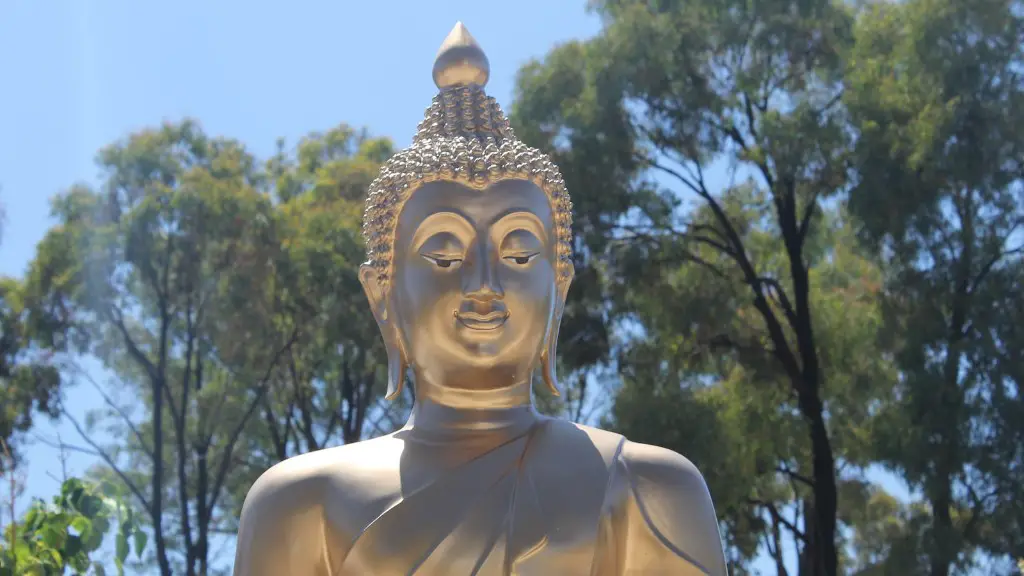Overview
The debate between the differences between Catholicism and Christianity is an ongoing discussion with no definitive answers. While this discussion is applicable to many other religions, it is most strongly applicable to the two largest branches of Christianity – Catholicism and Protestantism. The term “Christianity” within this article alludes to Protestantism, whereas, “Catholicism” alludes to the Catholic Church hierarchy. To understand more about whether Catholicism and Christianity are different religions, we need to look at the different factors that make up both religions and consider their implications.
In terms of beliefs and practices, Catholicism and Christianity have much in common. Both religions accept Jesus Christ as their savior and believe that salvation comes from faith in Him. Both religions make use of the Bible as a core source of authority, however, Catholic Bible comprises 73 books and Protestants utilize 66. Also, the canon of Scripture is different between each branch; with Protestants recognizing the Apocrypha differently than the Catholic Church. The Catholic Church has also included a large set of traditions, which are not accepted by Protestants. In fact, some of these practices are specifically rejected by Protestants as unbiblical.
In terms of organization, Catholicism stands out as the largest branch of Christianity, with the Pope serving as its head. The Catholic Church is divided into five different branches – Latin Rite, Byzantine Rite, Chaldean Rite, Maronite Rite and Syriac Rite. Catholicism is considered to be the official religion of the Roman Catholic Church. Protestants, on the other hand, are loosely organized and typically reject the authority of the Catholic Church hierarchy. Thus in terms of organization, there is a significant difference between the two branches of Christianity.
Sovereignty
In terms of sovereignty, the Catholic Church is a hierarchical system and subjects itself to the authority of the Pope. The Pope is considered the spiritual head of the Church and the highest authority in matters of faith and morals. The Popes decisions are usually considered binding, even by those Catholics who may disagree with them. Protestants, however, reject the authority of the Pope and consider themselves to be individually responsible for discerning theirfaith and devotion. Protestanism also favors religious tolerance, seeking to unify different Christian denominations. As such, there is an obvious difference in terms of the amount of freedom that exists within the two branches of Christianity.
Culture and Society
The cultures that have developed around Catholicism and Protestantism are quite different, reflecting their contrasting organizational structures. The Catholic Church is much more traditional and ritualistic, with priests and other ecclesiastical officials occupying key roles in both spiritual guidance and the organization of societal norms. In addition, the Catholic Church has a much wider base of institutions, such as schools or hospitals, that seek to promote its beliefs. Protestant churches tend to be much more informal and anti-ritualistic, emphasizing individual faith and freedom. Consequently, the amount of cultural influence and institutional participation that exists in Protestantism is much less than that of Catholicism.
Comparison
It is evident that Catholicism and Christianity differ in terms of beliefs and practices, organization, sovereignty and culture. The Catholic Church has a much more hierarchical structureand tends to emphasize ritualistic worship, while Protestantism is more individualistic in nature and does not involve the level of hierarchy present in Catholicism. The different views on sovereignty also separate the two faiths, with Catholics accepting the authority of the Pope and Protestants not recognizing a single ecclesiastical authority. When considering culture, Catholicism has grown around traditional institutions and organizations, while Protestantism is less organized and focused on individual grace and faith. Consequently, it would seem that there are fundamental differences between Catholicism and Protestantism.
Implications
The differences between Catholicism and Protestantism have significant implications for the overall Christian church. In terms of unity, tensions between Catholics and Protestants have hindered the growth of the Christian faith. Disagreements over interpretations of the Bible and other theological points of contention can create division rather than harmony. In addition, due to differing views on sovereignty, it could be argued that Catholics and Protestants exist within a separate ecclesiastical framework. As such, the potential for reunification of the two faiths is minimal, as dialogue and agreement are necessary prerequisites for reconciliation.
Ideas for Closing the Gap
Despite the differences between Catholicism and Protestantism, there has been a growing awareness of how the two branches of Christianity can benefit each other. Many Catholic and Protestant organizations, including the World Council of Churches, are working to promote dialogue and understanding between the two groups. Such initiatives can help to bridge the divide and enable Catholics and Protestants to collaborate and celebrate their mutual faith. Additionally, education is a powerful tool that can help to reinforce the common core beliefs shared by Catholics and Protestants and reduce misconceptions.
Interfaith Relationships
The tensions between Catholicism and Protestantism also extend to other Christian and non-Christian faiths. Catholics have a long history of standing against other religious beliefs outside the Catholic Church, and Protestantism has traditionally been vocal about its opposition to Catholicism in particular. Such attitudes can lead to a breakdown in communication between believers of different faiths and prevent the establishment of meaningful relationships. However, initiatives such as the World Council of Churches are working to facilitate dialogue between faiths and promote understanding and love between different religious groups.
Identification as a Member of a Faith
When it comes to identifying oneself as a Catholic or Protestant, many factors must be taken into consideration. Each individual’s belief systems and values can help to determine which branch of Christianity they feel the most comfortable with, as well as what practices they feel best reflect their faith. Additionally, individuals may choose to combine aspects of both Catholicism and Protestantism, creating their own faith identity. Ultimately, the decision should be based on what is best for each individual.
Global Pre- dominance
Christianity is one of the most widely practiced religions on Earth. Catholicism is the largest denomination within Christianity and is believed to be the world’s largest organized religion in terms of total number of followers. However, the growth of Protestantism has been rapidly increasing in some parts of the world and is now considered the dominant form of Christianity in most Protestant regions of the world. Christianity’s global pre-eminence, particularly the increasing prominence of Protestantism, has had a major impact on the global religious landscape, as well as on the relationship between Catholics and Protestants.
Conclusion
At the end of the day, the differences between Catholicism and Protestantism are rooted in beliefs, practices and organizational structures. While both branches share a great deal of common ground, the differences are obvious and the implications can be significant. Nevertheless, there are fruitful efforts to bridge the divide between Catholics and Protestants, allowing them to share their faith in peace and mutual respect. Additionally, individuals of all faiths can work together to foster understanding and build meaningful relationships with those of different faiths.

